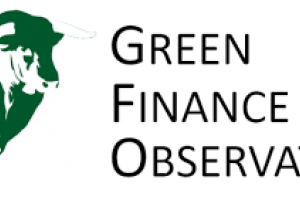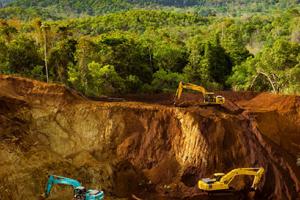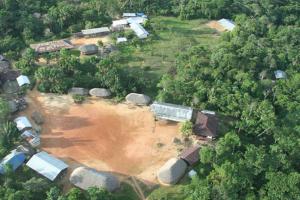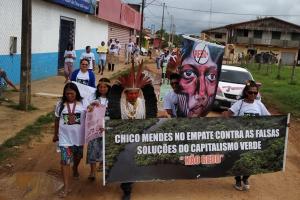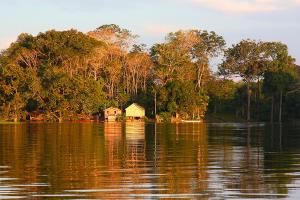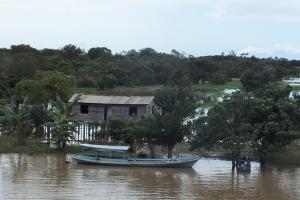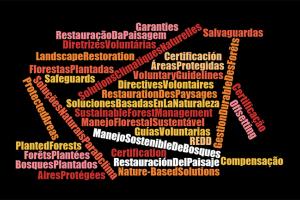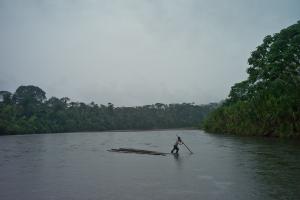International Forest Policies
Tropical forests have been on the United Nations’ agenda since the 1992 Earth Summit in Rio de Janeiro, Brazil. Unfortunately, corporate interests have co-opted these processes and initiatives, and they now promote mostly market-based ideas—such as the 'green' economy or green’ capitalism—which are false solutions.
How does REDD+ fit into the development agenda in Indonesia? What are the actors involved in promoting REDD+ and with which interests? (Available in Indonesian).
Most governments, NGOs and corporations are promoting more Protected Areas and conservation areas around the world. But what does conservation mean? Marlon Santi of the Kichwa people of Sarayaku explains to us what the Amazonian peoples of Ecuador consider to be conservation.
The tens of millions of euros that the government of Acre received from the German government for its REDD+ program failed to stop deforestation. Despite this fact several Brazilian states continue to receive funds from the German government.
The environmental, climatic and social crisis has been a reality for many for a long time. Yet, rather than acknowledging their contribution to this crisis, corporations and allies use the pandemic to amplify their push to expand Protected Areas, presenting it as a "global solution".
When the Chure region was declared a Protected Area, the rights of thousands of Community Forest Groups were undermined. They keep resisting despite the overall violence and the accepted project from the Green Climate Fund.
This year, the theme chosen by the UN is “Forests and Biodiversity: Too Precious to Lose”. But how can the UN highlight this when its main policies related to forests and biodiversity allow for large-scale deforestation and biodiversity destruction?
This editorial aims to raise a high alert with regard to the corporate agendas that dominate international forest-related processes, which appear to be entering new phases. The decisions taken have very real impacts on forest communities.
Language is never neutral. Certain concepts have historically been used to dominate people and territories. This article highlights concepts that are usually presented in a positive light but that actually serve economic interests that harm forests and communities.
The control of genetic resources (non-human living organisms that humans can make use of) through property rights has caused a massive theft of forest peoples’ knowledge. A project called the Earth Bank of Codes aims for a global seizure of life for capital accumulation.
This bulletin highlights threats involved in the so-called “energy transition,” and exposes its dirty secret of exponential expansion of mining in the global South as a consequence of the massive demand for “green” energy.
REDD+ has shown to be a big failure for the climate, the forests and forest peoples, but many international agencies and governments continue to support it. This article takes a look at its inability to halt deforestation and the fundamental flaws of its main initiatives.
